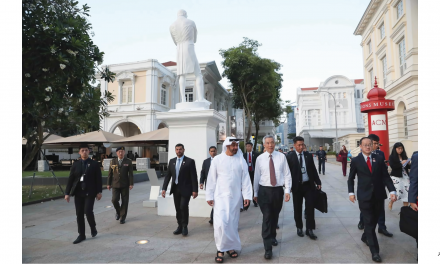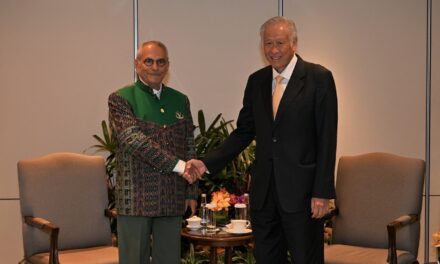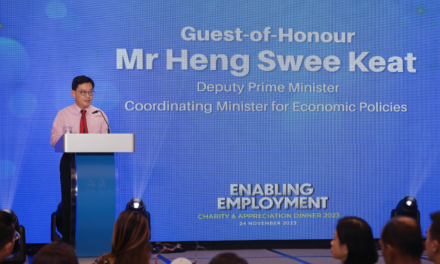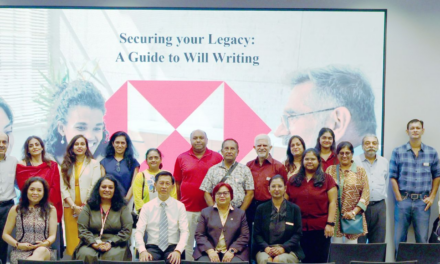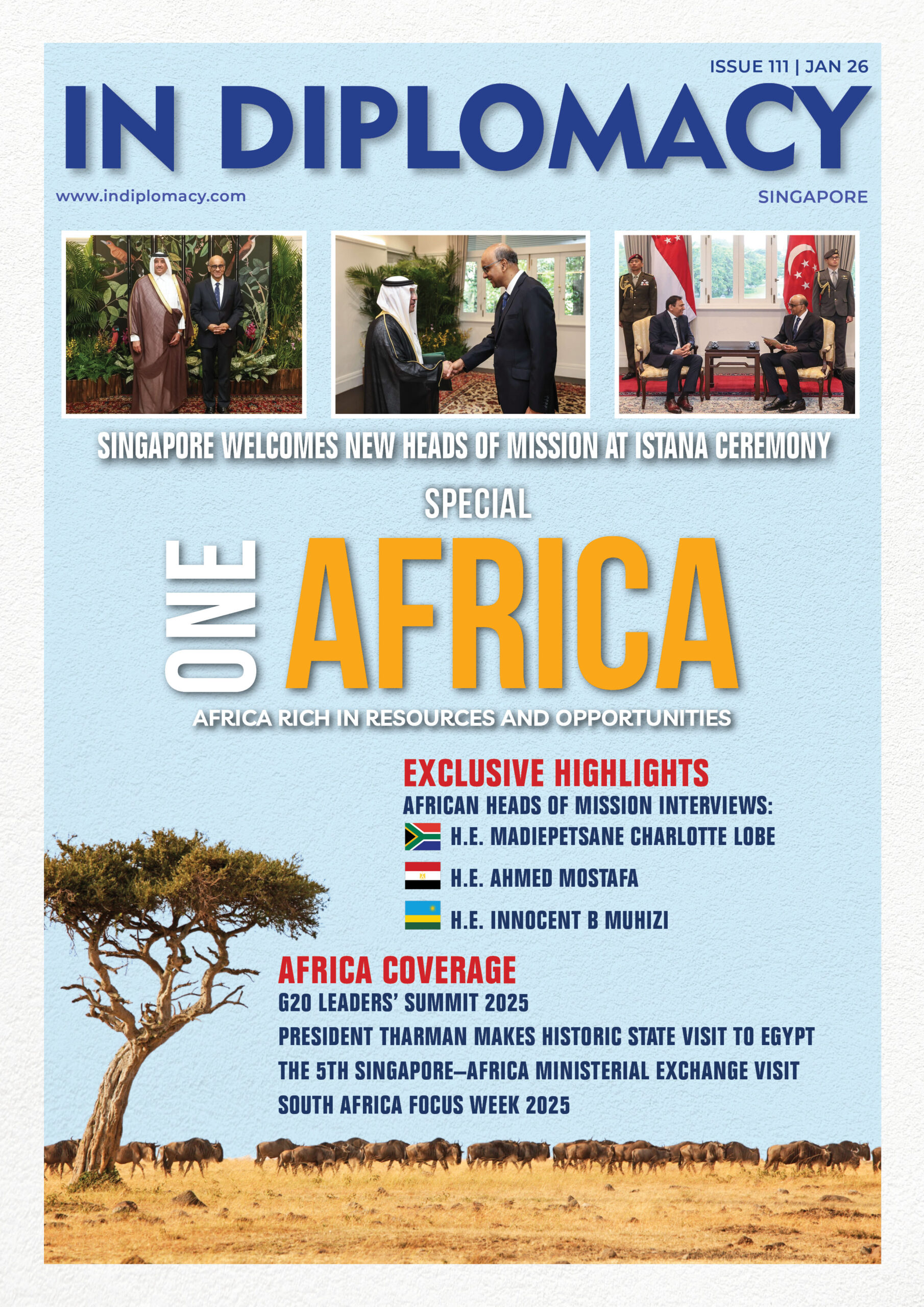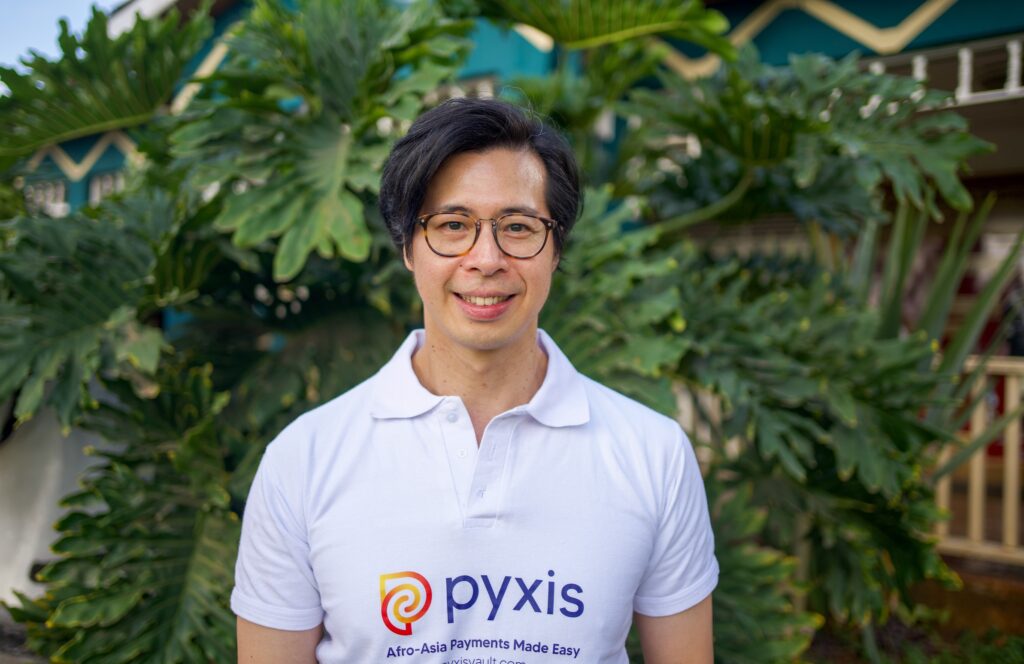
Exploring how Pyxis is transforming governance and trade in Africa through fintech and eGovernment solutions.
Mr George Chan, Co-Founder and COO of Pyxis, shares his transformative journey in Africa, highlighting his mission to unlock opportunities in one of the world’s most dynamic regions. His work spans innovative eGovernment projects, fintech solutions, and fostering partnerships to drive economic growth and integration.
Can you share with us your journey and experience working in Africa? What inspired you to venture into this region?
Frontier markets have always fascinated me due to the vast potential they hold and the relatively unexplored opportunities. My curiosity and drive to learn about these regions were major motivators in my decision to venture into Africa. Since a young age, I have been deeply passionate about business. From a logical standpoint, I have always believed that less developed areas present more opportunities for growth and innovation. This belief, combined with my innate curiosity, led me to embark on this exciting journey.
During my time working in Africa, I quickly learned that adopting a first-world mentality could be detrimental. Africa has its own unique set of challenges and opportunities, which requires an adaptable and innovative mindset. The continent has taught me that “there’s always a way” to overcome obstacles, even when situations seem impossible. While the work can often be frustrating due to the lack of infrastructure and resources we often take for granted, it also cultivates a sense of resilience and creativity. Success in this environment demands that you consider every aspect meticulously and be ready to roll up your sleeves and get things done yourself. This hands-on approach has not only been a necessity but also incredibly rewarding, providing me with invaluable experiences and insights. You’ve had extensive experience in Africa, particularly during your tenure with GUUD and CrimsonLogic.

Could you narrate your journey and share some notable achievements or challenges you faced?
I first stepped foot in Africa in 2010, with the primary objective of bringing Singapore’s expertise in eGovernment to the continent. Two areas where I found notable success were in developing Judiciary and Trade Facilitation solutions for various governments. I was responsible for the entire process from start to finish, including negotiation, solution design, legal aspects, logistics, operations, and service delivery. For instance, I played a pivotal role in developing the eJudiciary systems for Mauritius and Namibia, as well as national trade solutions for Kenya. One of my last significant projects with GUUD was a regional trade platform that connected five Revenue Authorities and two Port Authorities in East Africa to a unified system called the Single Customs Territory Centralised Platform.
Navigating national-level projects in frontier markets is no easy feat, especially when one must consider complex political dynamics. Moreover, these regions often grapple with limited budgets, which necessitates a high degree of creativity in project structuring. Despite Singapore’s world-renowned expertise, I encountered substantial competition from larger economies such as China, France, Korea, and Japan. Each of these nations brought its own strengths and resources to the table, making it imperative to leverage Singapore’s unique capabilities and innovative approaches to stand out.
What strategies have you implemented to manage large-scale projects across diverse regions like Africa and ASEAN?
Speaking from my experience in Africa, I can confidently say that my work here has been immensely rewarding. Representing Singapore, a country known for its integrity and high standards, has significantly bolstered my credibility. The influence of the late Mr. Lee Kwan Yew cannot be overstated; his memoirs are widely read by African leaders who hold him, and by extension, Singapore, in high regard. This respect is evident as many African leaders frequently visit Singapore to learn from our model of success.
Singapore laid down a robust foundation, and I am fortunate to build upon it with professionalism and dedication. Singapore has been a pioneer in pushing for automation, especially in the judicial and trade domains. The nation’s commitment to innovation is evident in its highly efficient systems and processes. As part of my role, I often host foreign delegations to our courts and ports, showcasing our advanced infrastructure and the seamless integration of technology into our public services. The results speak for themselves, as we consistently receive accolades for our streamlined operations and transparent processes.
How do you approach building and maintaining relationships with government agencies and local partners?
Building and maintaining relationships with government agencies is difficult because it is not binary. We also cannot categorize an agency as a single entity, because it is composed of different individuals. Each entity comprises senior management and those who execute the work. It is imperative to consider many aspects, such as election cycles, needs and wants. Additionally, it is unrealistic to expect that one individual can get along with everyone; it is important to know what resources you have at your disposal.
This multifaceted nature of government agencies means that one must engage with a diverse range of stakeholders, each with their own priorities and perspectives. Successful relationship-building requires a nuanced understanding of these dynamics and a strategic approach to communication and collaboration. Flexibility and adaptability are key; being able to navigate the ever-changing political landscape and adjusting strategies accordingly can make a significant difference in achieving project goals.
Furthermore, establishing trust is crucial. Demonstrating competence, delivering on promises, and maintaining transparency can help in gaining the confidence of both senior officials and frontline workers. Regular engagement, whether through formal meetings or informal interactions, helps in keeping the lines of communication open and fostering a sense of partnership.
Ultimately, the goal is to create mutually beneficial relationships where both parties feel valued and understood. By recognizing the individuality within government agencies and respecting their processes, one can build a foundation for successful collaborations that lead to impactful outcomes.
Can you tell us more about Pyxis? What services do you provide, and how do you differentiate yourself in the market?
Pyxis is a cross-border payment fintech company that started its journey in Africa, recognizing the significant need for seamless payment solutions in the region. With the vision of growing into a global entity, Pyxis addresses the complex payment challenges that arise from international trade.
China has emerged as Africa’s largest bilateral trading partner, accounting for approximately 20% of Africa’s exports and 16% of its imports. In 2023, the trade volume between China and Africa reached a record $282 billion. However, facilitating payments between these two regions remains a challenge, particularly due to the exotic currency exchange involved.
The majority of the African economy is informal. Anecdotally, the true trade volume is easily 2 to 3 times larger because information is not recorded. By providing a user-friendly cross-border payment solution, we believe it will unlock much bigger potential. Pyxis aims to bring transparency and efficiency to these informal economies, enabling businesses to thrive and fostering greater economic integration across the continent.
Our services cover a wide range of payment solutions, from local collection, currency conversions, and settlement all designed to facilitate smooth and secure transactions. By leveraging cutting-edge technology and a deep understanding of local markets, we differentiate ourselves through our commitment to innovation and our ability to adapt to the unique challenges of the African payment landscape.
What are some current or upcoming projects at Pyxis that excite you the most?
A few months back, we launched WeChat Pay, we are now finalising our integration with Alipay as we speak, and a few other B2B partnerships are in the pipeline. These solutions are designed to be easy to use for African SMEs, which are often neglected by traditional banks. This is fundamental because once operationalized, we can, through partnerships, start incorporating other value-added services such as alternative financing, freight forwarding, and more. This holistic approach is aimed at providing a comprehensive suite of financial tools that can empower African businesses to expand their operations and compete on a global scale.
You’ve been involved in cutting-edge solutions like national IDs and eGovernment portals. How do you see technology shaping governance and trade in Africa over the next decade?
Did you know the world’s first mobile wallet, M-Pesa, was launched in Kenya in 2007? Africa has proven to be highly receptive to adopting new technologies. This openness to innovation is one of the factors that makes the continent so promising. Africa has a lot to offer to the world, from its abundance of minerals and fertile soils for agriculture to its young and dynamic population. However, to fully integrate with the global economy, the continent needs advanced technology solutions.
What are your plans for expanding Pyxis’ presence or partnerships in Africa or other regions?
Pyxis is always looking for partnerships; we can’t do this alone. Case in point, my co-founder April Long and I established the AfroAsia Fintech Association to foster relationships on both sides. At the moment, our focus is on Africa because the continent is extremely large, and we want to do well here. Though we will not rule out other regions, especially through partnerships, it opens up new opportunities on different continents, which has already happened.

